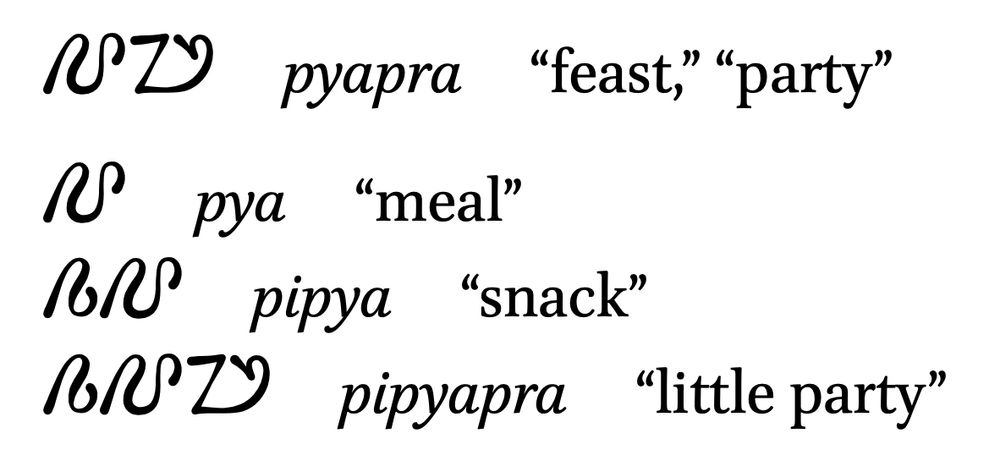I’m here to post about my conlangs and read about yours! You can also find me at https://levunalangs.tumblr.com/ and https://youtube.com/@levunalangs

Read more here: www.tumblr.com/levunalangs/...

Read more here: www.tumblr.com/levunalangs/...
Prepositions might clear it up (da is ‘of’ and hru is ‘made of,’ more or less) but it could still be unclear. I’m sure there’s a way to disambiguate that the Valya speakers haven’t taught me yet.

Prepositions might clear it up (da is ‘of’ and hru is ‘made of,’ more or less) but it could still be unclear. I’m sure there’s a way to disambiguate that the Valya speakers haven’t taught me yet.

You can find out just how those words are all related here: www.tumblr.com/levunalangs/...

You can find out just how those words are all related here: www.tumblr.com/levunalangs/...
Today’s word is in honor of International Non-Binary People’s Day!
Today’s word is in honor of International Non-Binary People’s Day!

You can read more here: www.tumblr.com/levunalangs/...

You can read more here: www.tumblr.com/levunalangs/...
www.tumblr.com/levunalangs/...

www.tumblr.com/levunalangs/...



Tünitya tüka müfwirdu rwa kimazi “pa,” ba tüdli tsivünga mu rwa kimazi “du.”
Geese fly away in a V-shape and come back in a Ʌ-shape.
Tünitya tüka müfwirdu rwa kimazi “pa,” ba tüdli tsivünga mu rwa kimazi “du.”
Geese fly away in a V-shape and come back in a Ʌ-shape.

In the example below, the last glyphs on each line are ‘pa’ and ‘du,’ used here to refer to their shapes (“kimazi pa” is “the shape of ‘pa’”).

In the example below, the last glyphs on each line are ‘pa’ and ‘du,’ used here to refer to their shapes (“kimazi pa” is “the shape of ‘pa’”).


